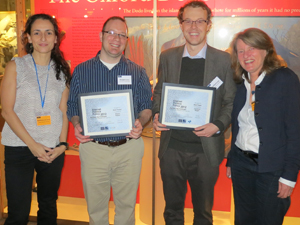New research by Andrew Przybylski (OII, Oxford University), Netta Weinstein (Cardiff University), and Kou Murayama (Reading University) published today in the American Journal of Psychiatry suggests that very few of those who play internet-based video games have symptoms suggesting they may be addicted. The article also says that gaming, though popular, is unlikely to be as addictive as gambling. Two years ago the APA identified a critical need for good research to look into whether internet gamers run a risk of becoming addicted and asked how such an addiction might be diagnosed properly. To the authors’ knowledge, these are the first findings from a large-scale project to produce robust evidence on the potential new problem of “internet gaming disorder”. The authors surveyed 19,000 men and women from nationally representative samples from the UK, the United States, Canada and Germany, with over half saying they had played internet games recently. Out of the total sample, 1% of young adults (18-24 year olds) and 0.5% of the general population (aged 18 or older) reported symptoms linking play to possible addictive behaviour—less than half of recently reported rates for gambling. They warn that researchers studying the potential “darker sides” of Internet-based games must be cautious. Extrapolating from their data, as many as a million American adults might meet the proposed DSM-5 criteria for addiction to online games—representing a large cohort of people struggling with what could be clinically dysregulated behaviour. However, because the authors found no evidence supporting a clear link to clinical outcomes, they warn that more evidence for clinical and behavioural effects is needed before concluding that this is a legitimate candidate for inclusion in future revisions of the DSM. If adopted, Internet gaming disorder would vie for limited therapeutic resources with a range of serious psychiatric disorders. Read the full article: Andrew K. Przybylski, Netta Weinstein, Kou Murayama (2016) Internet Gaming Disorder: Investigating the Clinical Relevance of a New Phenomenon.…
New research suggests that very few of those who play internet-based video games have symptoms suggesting they may be addicted.









